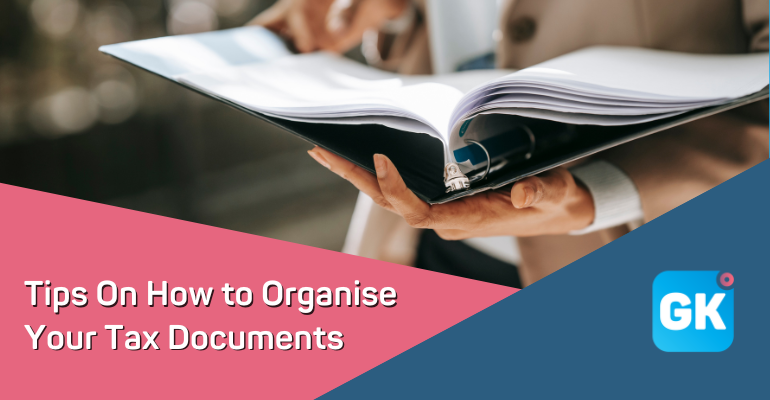Tips On How to Organise Your Tax Documents

Organising your tax documents is crucial for efficient tax preparation and compliance. Here are some tips to help you organise your tax documents effectively:
1. Create a Dedicated Folder: Designate a specific folder or binder to keep all your tax documents together. This will help you keep everything organised and easily accessible.
2. Categorise by Year: Create separate sections or folders within your main tax folder for each tax year. This will allow you to sort and locate documents based on the relevant tax period.
3. Gather Income Documents: Collect all your income-related documents, such as payslips, P60 forms, and statements from pensions or social welfare payments. Place them in a separate section within your tax folder.
4. Organise Expense Records: Sort your expense records into different categories, such as medical expenses, charitable donations, and business expenses. Keep receipts, invoices, and supporting documents for each category together. This will help you easily identify and claim deductions.
5. Retain Property and Asset Documents: Keep records related to property and assets, including purchase and sale agreements, mortgage statements, and rental income records. These documents are important for calculating capital gains or losses and claiming deductions.
6. Maintain Investment and Savings Records: Organise statements and records for investments, such as stocks, bonds, or mutual funds. Include documentation for interest earned on savings accounts or dividends received.
7. Include Tax Forms and Notices: Keep copies of your filed tax returns, along with any correspondence or notices received from Revenue Commissioners. This will provide a comprehensive history of your tax filings.
8. Store Electronically: Consider scanning and storing your tax documents electronically. Create digital folders for each tax year and relevant categories. Ensure you have backup copies of electronic files stored securely
9. Maintain a Record of Deductions and Credits: Keep a separate document or spreadsheet where you track eligible deductions, credits, and any supporting documentation. This will help you ensure you don’t miss out on any potential tax benefits.
By following these tips, you can maintain an organised system for your tax documents, making tax filing and compliance more streamlined and efficient.
Get in Touch:
If you need a reliable professional accountant to look after your taxation reports, why not call us now? Please call us on (01) 969 5100


